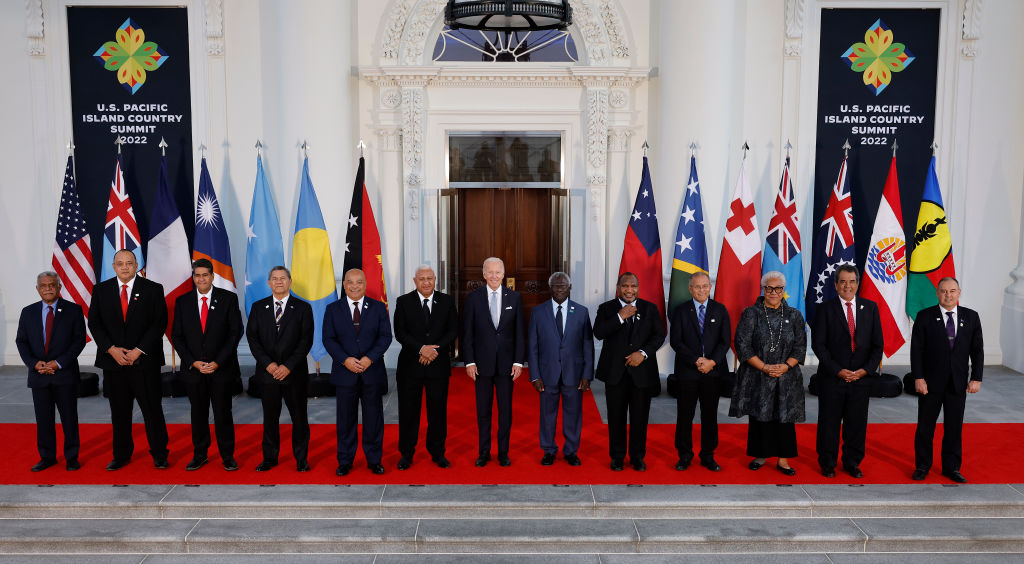
President Biden and Pacific Island leaders at the White House.
US Opens Embassy in Solomon Islands to Counter China
Dave DeCamp / Antiwar.com & Pete McKenzie / The Washington Post
(February 1, 2023) — The US on Thursday opened an embassy in the Solomon Islands as part of its strategy to counter China in the region, as Beijing has forged stronger ties with the Pacific island nation in recent years.
The State Department notified Congress early last year that it would be opening an embassy in the Soloman Islands around the same time the Biden administration released its Indo-Pacific Strategy.
The strategy calls for the US to expand its military and diplomatic presence in the region as part of a buildup aimed at China. The US previously operated an embassy in the Solomon Islands, but it closed in 1993. According to The Associated Press, the new embassy is starting small with a chargé d’affaires and only two State Department staff and a handful of local employees.
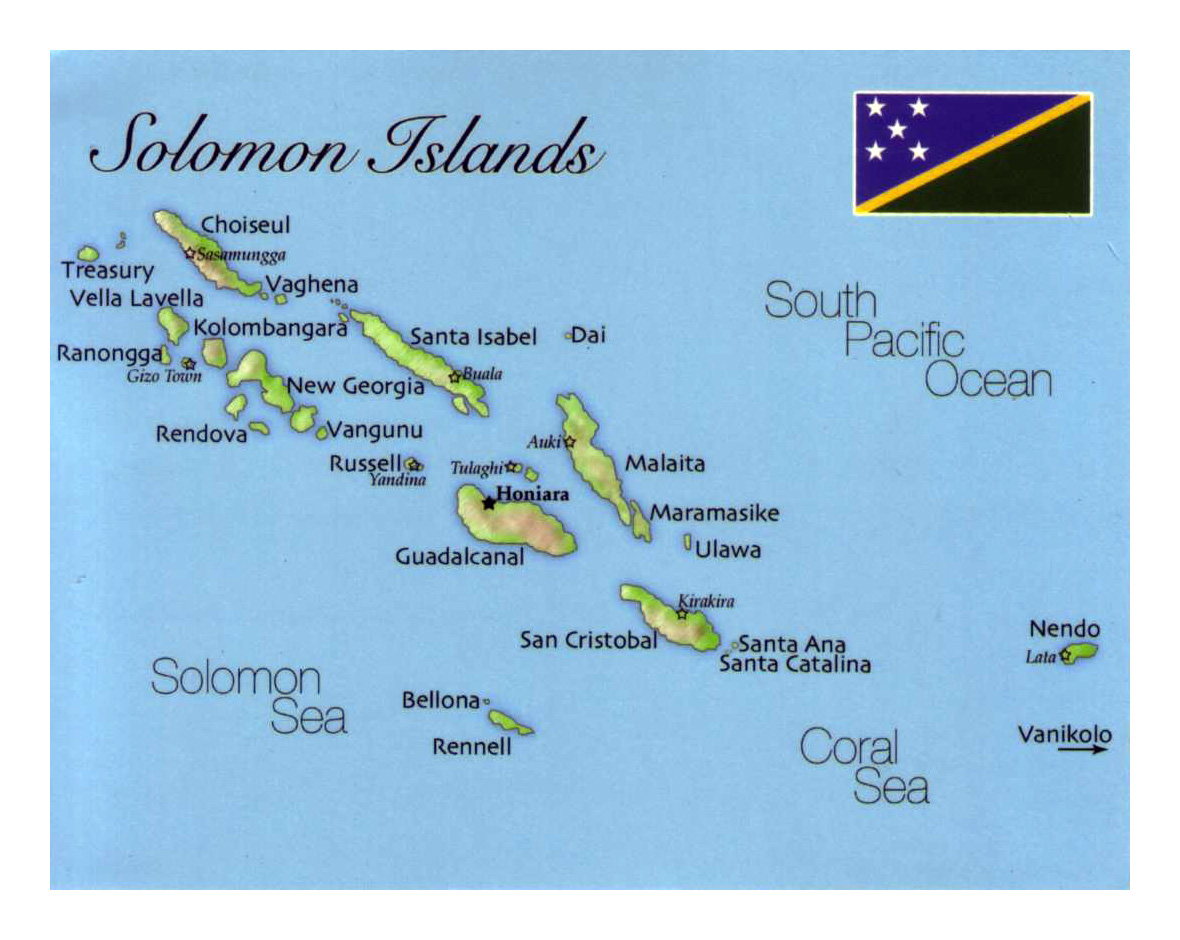
The Solomon Islands started moving closer to China in 2019 when they severed diplomatic relations with Taiwan and opened up with Beijing. The move actually put the Solomon Islands in line with US policy, but US officials were alarmed about the Pacific island nation moving closer to China.
The Solomon Islands enraged officials in the US and Australia last year when they signed a security pact with China. Under the deal, China can send police and other security forces to the islands. Australia has claimed the agreement could lead to China building a military base, but Solomons Prime Minister Manasseh Sogavare insists that won’t happen.
Sogavare has slammed the Western pressure his country has come under, likening it to being threatened with an invasion. “We deplore the continual demonstration of lack of trust by the concerned parties, and tacit warning of military intervention in Solomon Islands if their national interest is undermined in Solomon Islands. In other words, we are threatened with invasion,” he told parliament last May.
The criticism of Sogavare’s decision to sign a deal with China came as the US and NATO began funding the war in Ukraine in the name of supporting a country’s right to choose its military alignment. Leading up to the invasion, Russia asked the US to guarantee Ukraine won’t ever join NATO, but the Biden administration refused to make the promise.
State Department spokesman Ned Price said in March 2022 said that the war in Ukraine was about protecting the principle that “each and every country has a sovereign right to determine its own foreign policy, has a sovereign right to determine for itself with whom it will choose to associate in terms of its alliances, its partnerships, and what orientation it wishes to direct its gaze.”
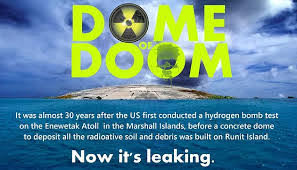
Marshall Islands, Feeling Neglected
by the US, Enjoys New Leverage
Pete McKenzie / The Washington Post
MAJURO, Marshall Islands (January 27, 2023) — The leaders of the Marshall Islands, a collection of 29 coral atolls lying halfway between Hawaii and Australia, know exactly why the United States just agreed to a deal promising $700 million in new support over four years.
“It’s because of China. We’re not naive,” Marshallese Foreign Minister Kitlang Kabua said in an interview at a restaurant close to the country’s parliament in the capital of Majuro. It offered a view of a vast lagoon speckled with rusted fishing ships that bring in tuna, and the coconut palms that fringe the thin circle of land that makes up the Marshalls’ main atoll.
Fishing and harvesting are not, however, sufficient to support the country’s population of about 80,000.
For the past 40 years, the Marshall Islands has relied on financial assistance from its former colonizer, the United States, which carried out 67 nuclear tests on two Marshallese atolls in the 12 years after World War II.
The current 20-year treaty expires this year, and talks about a new deal were not going particularly well last year. Then the Marshalls’ government got Washington’s attention when several top officials refused to attend treaty negotiations running alongside a high-level Pacific summit at the White House in September unless the Biden administration agreed to a better deal.
The bargaining tactic worked: The administration dispatched high-level representatives to the Marshall Islands for further negotiations, where a newer and much larger agreement was reached.
The case of the Marshall Islands is emblematic of the increasingly fervent geopolitical competition in the Pacific as the United States and China jostle for influence.
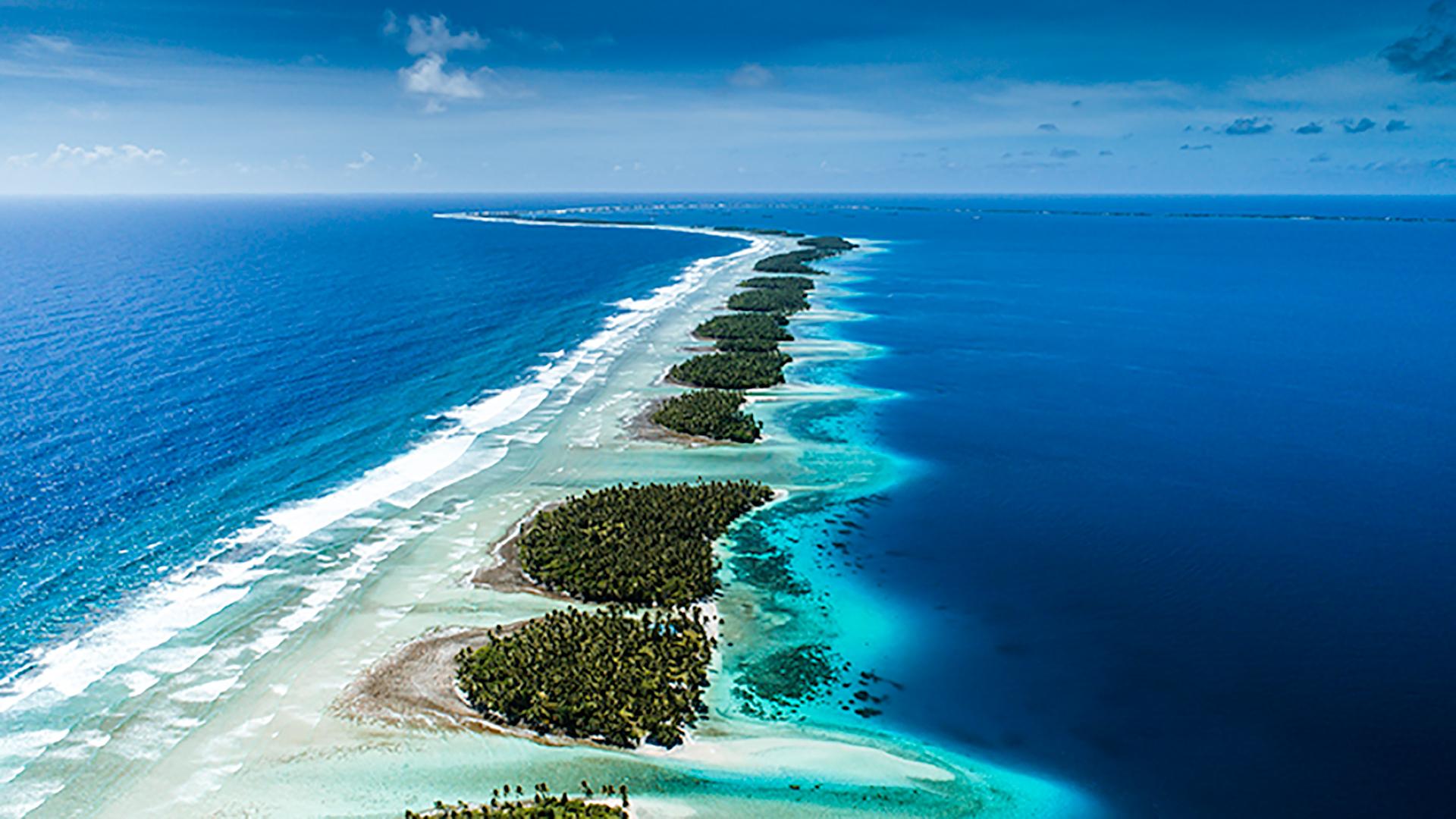
Located in the middle of the Pacific, the Marshal Islands are a key strategic outpost.
The Biden administration has acknowledged that Pacific islands got a “short shrift” as the United States focused its attention elsewhere. It is now rapidly trying to make up for lost time as China lavishes money and attention on many island nations in an attempt to grow influence across the Pacific and reap economic, diplomatic and military gains.
“We’re caught between two big powers like a girl two boys are fighting over,” said Peterson Jibas, a Marshallese senator and member of the country’s negotiating team.
This month, the Biden administration agreed to the outlines of a formal deal, pledging $700 million to the Marshall Islands’ national trust fund to help foster economic development, support nuclear victims and protect against climate change. It is also negotiating similar deals with two other Micronesian countries: the Federated States of Micronesia and Palau.
Joseph Yun, Biden’s special envoy in the negotiations, insisted in an interview with The Washington Post that a range of issues shaped his offer, including climate change and the Marshall Islands’ “steady” support of America. But, he admitted: “It’s no secret — China is a factor.”
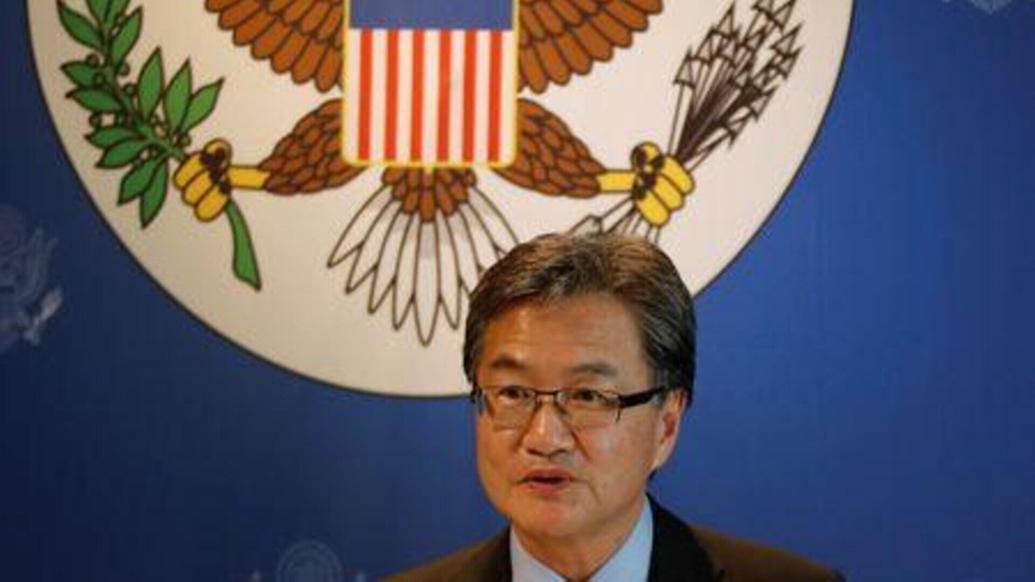
Joseph Yun, Biden’s special envoy, admits: “China is a factor.”
The new agreement gives Washington significant control over Marshallese foreign policy, a veto over foreign military use of Marshallese territory — which, with Palau and the Federated States of Micronesia, covers an expanse of ocean larger than the continental United States — and a long-term lease over the land used for a critical American military base.
In return, the United States provides financial support and allows Marshallese citizens visa-free access to America.
The islands’ leaders have long complained that previous deals did not adequately compensate them for the damage done by American nuclear testing here.
A mushroom cloud from a nuclear test over the Enewetak Atoll in the Marshall Islands on Nov. 1, 1952. It was the world’s first test of a full-scale thermonuclear device. (Los Alamos National Laboratory/AP)
Just two years after the United States took control of the Marshall Islands from Imperial Japan in 1944, it began testing its new nuclear weapons here, detonating the equivalent of 7,000 Hiroshima bombs on Bikini and Enewetak atolls by 1958, causing heightened cancer rates, miscarriages and ongoing resentment that lingered long after the fallout had cleared.
“They say communism is bad, but China didn’t drop 67 bombs on us,” said Jibas, who represents Bikini and remains suspicious of his country’s main financial contributor. “America is like a white rat with red eyes.”
Both Washington and Beijing understand the strategic importance of island nations like the Marshalls.
The United States gained control here only after thousands of Americans died during its brutal World War II campaign through Micronesia. Although the United States said at the time that it was liberating the Marshall Islands from Japanese colonizers, when the war ended it never left. Instead, it took over its governance, using it as a “buffer” against competitors like China and a home for military bases, local officials say.]
Even after Micronesian countries gained independence in the late-20th century, Washington maintained control through agreements like the one with the Marshall Islands.
The imbalance of power meant the Marshall Islands had previously struggled to press its case, Jibas said. “America is like an older brother. What do you do when he slaps you?”
Yet the frustration of people like Jibas co-exists alongside a degree of goodwill felt by others, born of the United States’ long presence in Micronesia. Many Marshallese routinely refer to America as “the mainland.”

Clean water now flows in Marshall Islands thanks to Australia
The Americans “are friendly people,” said Lillian Maika, who sat in a cozy home on the small island of Ebeye. Above her hung a photograph of her son, who was killed while serving in South Korea with the American military. While she says “too many” Marshallese are coaxed into the military out of a lack of other opportunities, she still appreciated that America “gives us work, plenty of money. We get what we need.”
That familiarity with America is matched by a general suspicion of China. Lucia Lomae, an elderly Marshallese woman who cradled her grandchild outside her home on the remote island of Enubirr, thought that “China is not good,” although she said she wasn’t sure why.
Ongoing poverty and a growing Chinese presence, however, mean familiarity alone is increasingly insufficient.
Beijing last year proposed a sweeping Pacific-wide economic and security agreement that would have led to increased trade and Chinese involvement in the training of regional police forces, among other things.
While Pacific nations rejected the deal during a regional summit, several nations expressed interest in a modified version. China has also notched significant wins with several individual Pacific nations.
Kiribati, which lies immediately south of the Marshall Islands, cut ties with Taiwan in favor of China in 2019, and signed as many as 10 agreements deepening relations during a visit by China’s foreign minister last May.
The Solomon Islands meanwhile signed a controversial agreement allowing it to invite China to deploy armed police and military personnel there, sparking fears China might construct a military base in the country. Solomon Islands officials have dismissed such concerns, but this has not assuaged Western fears.
At the same time, China has provided Kiribati and the Solomon Islands with significant aid and financing.
Hence the sudden American effort to pay more attention — and more financial aid — to the region. At the September White House summit, Biden promised an additional $810 million in aid for the Pacific generally.

Tuna boats in the waters of the Marshall Islands.
“The security of America, quite frankly, and the world depends on your security and the security of the Pacific islands,” Biden said at the time.
But the United States’ fraught history also means Pacific officials treat such commitments carefully. Despite her significant victories, the Marshallese foreign minister remains cautious.
“If we take you as a friend, we expect you to act as a friend. But the US is a different matter. They’re sneaky. They’re smart,” Kabua said.
Now the Marshall Islands is enjoying playing its stronger hand. In its most recent negotiations, “we were much more wary, we were less naive, we put our foot down and made our demands,” Kabua said. “We found that this is how we operate with the US, and we found it to be effective.”
Posted in accordance with Title 17, Section 107, US Code, for noncommercial, educational purposes.